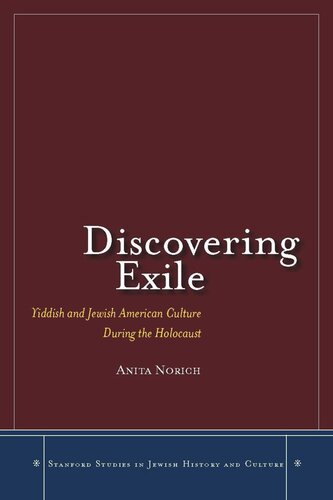

Most ebook files are in PDF format, so you can easily read them using various software such as Foxit Reader or directly on the Google Chrome browser.
Some ebook files are released by publishers in other formats such as .awz, .mobi, .epub, .fb2, etc. You may need to install specific software to read these formats on mobile/PC, such as Calibre.
Please read the tutorial at this link: https://ebookbell.com/faq
We offer FREE conversion to the popular formats you request; however, this may take some time. Therefore, right after payment, please email us, and we will try to provide the service as quickly as possible.
For some exceptional file formats or broken links (if any), please refrain from opening any disputes. Instead, email us first, and we will try to assist within a maximum of 6 hours.
EbookBell Team

5.0
78 reviewsDiscovering Exile analyzes American Yiddish culture and its development during the European Holocaust and shows how our understanding of American Jewish culture has been utterly distorted by the omission of this context. It explores responses to some of the most intense cultural controversies of the period, examining texts in various genres written by the most important Yiddish writers and critics and placing them at the center of discussions of literary modernism and cultural modernity. Anglo-Jewish writers of the period provide a counterpoint to and commentary on this Yiddish story. Norich seeks to demythologize Yiddish as mame-loshn (mother tongue)—as merely the language of the home and the past—by returning to a time of great, if ironic, vibrancy, when Yiddish writers confronted the very nature of their existence in unprecedented ways. Under increasing pressure of news from the war front and silence from home, these writers re-imagined modernism, the Enlightenment, political engagement, literary conventions, and symbolic language.